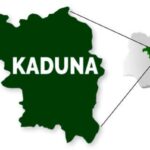Present day Port Harcourt was known as Rebisi before the then Governor-General of Nigeria, Sir Frederick Lugard, in 1913, changed the name.
Rebisi, according to the ethnology of Ikwerre ethnic nationality is an offshoot of Apara clan and had within its fold clans such as Orozu, Worukwu, Ezimgbu, Ogum-nu-Abali, Orogbum, Elekahia, Nkpolu, Nkpolu Orogbum, Rumuji, Rumumasi, Rumukalagbo, Oroije, Rumuibekwe and Orominieke.
The old Port Harcourt township, which is presently occupied by the Nigeria Ports Authority (NPA), was occupied by the Okrika Aborigines who share cultural affinity with the Ikwerres.
So, the area that became Port Harcourt was part of fishing settlements also called Borokiri in Okrika language and the farmlands of the Diobu group of the Ikwerre ethnicity.
Geologist Albert Ernest Kitson had discovered coal in Enugu in 1909, and the colonial government began the exploration of the mineral in earnest.

Following the mining of coal in Enugu, the administration decided to create a port to export coal from the collieries of Enugu located 243 kilometres north of Port Harcourt. A railway called the Eastern Line was also built by the British government to link the two cities.
Rebisi was already a coastal area, and trading through the sea have been going on, but the harbour/waterfront needed to be transformed into a befitting port ideal for export, import and other businesses.
The colonial government caused the people of Rumuji which is now called Diobu in Port Harcourt to cede their land, and the building of a port-town was started. In the creeks to the south of the original port were the fishing camps and grounds of the Okrika-Ijaw group.
The port was eventually built in 1912.
While Frederick Lugard served as Governor-General of Nigeria, Lewis Vernon Harcourt, a British Liberal party politician, held the cabinet post of Secretary of State for the colonies from 1910 to 1915. Harcourt was said to have acted as a Trustee of the British Museum, Wallace Collections, the London Museum and the National Portrait Gallery.
According to Wikipedia, “When the port was established in 1912, there was much controversy about the name it should receive. In August 1913, the Governor-General of Nigeria, Sir Frederick Lugard wrote to Harcourt, then Secretary of State for the Colonies, that ‘in the absence of any convenient local name, I would respectfully ask your permission to call this port Harcourt’. The Secretary of State replied, ‘It gives me pleasure to accede to your suggestion that my name should be associated with the new port.’”
So, Lugard named the port after Lewis Harcourt as a mark of honour to him. With time, the entire Rebisi area, not just the port, became known as Port-Harcourt.
After the discovery of crude oil in Oloibiri in 1956, Port Harcourt exported the first shipload from Nigeria in 1958. It became the centre of the Nigerian oil economy and subsequently reaped benefits of its association with the petroleum industry by undergoing modernization and urbanization.
Port Harcourt’s growth was further due to its position as the commercial centre and foremost industrial city of the former Eastern Region.
There was no historical record on whether the locals resisted the changing of their ancestral community name to Port Harcourt but an elder statesman, Chief Anabs Sara Igbe, who was born in Port Harcourt, said he was not aware of any resistance from the locals on changing of the name.
Chief Sara Igbe said the leaders of both Rebisi and Okrika communities were consulted before the place was named after Lewis Vernon Harcourt.
The elder statesman, who went down memory lane on the beauty of Port Harcourt back in the days and how it earned the sobriquet ‘Garden City’, said there’s been a lot of distortions as a result of urbanization and that residents no longer respect the environment. He however noted that it remains one of the important cities in the country where trade and commerce, as well as oil and gas businesses takes place.
“Port Harcourt used to have a lot of industries in the Trans Amadi area but most of them have packed up because of insecurity and the hash economic policies of the government. In a nutshell, Port Harcourt is a good city. It used to have a tremendous night life but these days, cultism has taken away the night life.
“Port Harcourt was one city initially but now it’s a mega city with several communities springing into towns. In terms of planning, Port Harcourt township is the best planned area. The GRA is also well planned.
“Social life in Port Harcourt was better in the 60s and 70s. Important areas like Jubilee Park, Isaac Boro Park were so beautiful. We had swimming pool, basketball court and other recreational facilities.”

 Join Daily Trust WhatsApp Community For Quick Access To News and Happenings Around You.
Join Daily Trust WhatsApp Community For Quick Access To News and Happenings Around You.


